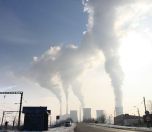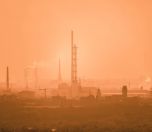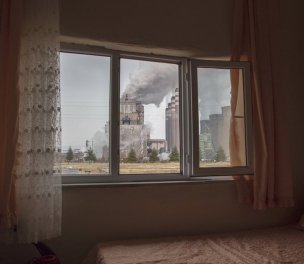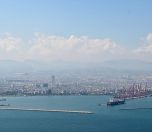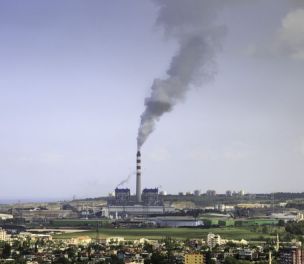Click to read the article in Turkish
The Right to Clean Air Platform, a group that consists of 16 NGOs in nature preservation and health areas, has released its 2020 Air Pollution Report.
The report titled, "The Black Report 2020: Air Pollution and Health Impact," focuses on air pollution data and preventable deaths in the country.
Here are some findings of the report, including the results of examinations that had been going on for four years:
Insufficient data
- There is not enough data on the quality of the air that approximately 18 million people living in 30 provinces breathe throughout 2019.
- In 2019, there is not enough data on the quality of the air that approximately 18 million people living in 30 provinces breathe throughout the year.
- Health effects of air pollution in one out of every five provinces could not be calculated due to insufficient data.
- In 51 out of 81 provinces, air pollution was above the World Health Organization (WHO) limits.
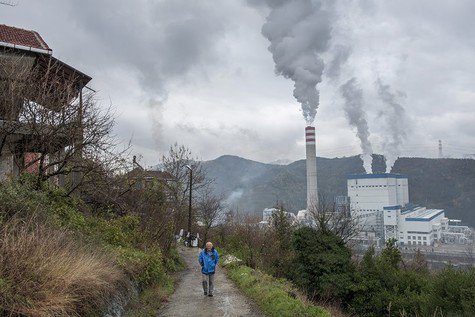
- Air pollution has become an unsolvable chronic problem in Iğdır, Düzce, Manisa, Bursa, Kahramanmaraş, and Afyon, which have been regularly breathing high levels of polluted air for the last four years.
- If air pollution had decreased to the WHO reference values, 7.9 percent (31,476 deaths) of all deaths could have been prevented in 2019 and 12.13 percent (45,398 deaths) could have been prevented in 2018.
- Since 2017, air pollution has caused over 6 times more deaths than traffic accidents every year.
- İstanbul has the highest number of deaths due to air pollution since 2017. In 2019, the provinces with the highest number of deaths were İstanbul (3,761), İzmir (2,075) and Manisa (1,680).
- In proportion to the population of provinces, the province with the highest number of deaths due to air pollution was Iğdır. In Iğdır, which had the dirtiest air in 2019, the death rate due to air pollution, which has been consistently high for the last three years, has made up 33.5 percent of the total deaths in the province.
- The use of coal for industrial facilities, including coal-fired thermal power plants, and for domestic heating were the main causes of pollution.
- The provinces with the cleanest air were Ardahan, Tunceli, Rize, Artvin and Bitlis. However, air pollution in some of these provinces is above the WHO's reference values as well.
"National reference values should be determined"
Prof. Çiğdem Çağlayan, the representative of the Public Health Specialists' Association at the Platform, said they had serious problems with data availability while working on the report.
"Fine particulate matter (PM2.5), which is a carcinogenic substance, is not measured sufficiently (90 percent or more per year) in 60 provinces," she said. "It is urgently required to improve the data quality in terms of the number of measurement days in PM10 stations, to increase the number of stations where PM2.5 is measured, and to determine a national limit value for PM2.5 in the legislation."
Coal-fired plants
Greenpeace Mediterranean's representative at the Platform, Onur Akgül pointed out the air pollution caused by coal fire plants.
"We request the Ministry of Environment and Urbanization not to allow these plants, which have not made the necessary investments to comply with environmental legislation, to operate," he said, referring to the plants in Afşin-Elbistan, Maraş.
Air pollution's effect on genes
Turkish Neurological Society representative Assoc. Prof. Semih Ayta stressed the impact of air pollution on peoples' genes.
"The effect of air pollution on our genes is not equal in all periods of life. The susceptibility to the effects of particulate matter increases in pre-pregnancy, the period in the womb, early childhood and old age.
"Studies on child patients show that air pollution triggers asthma attacks as a result of its effect on genes. Also, new studies have shown that exposure to particulate matter is associated with mental illness such as depression, "he said."
Recommendations by the platform
The Platform has made the following recommendations for improving air quality in the country:
- Increasing the data quality of all air quality measurement stations,
- Measuring the carcinogenic fine particulate matter (PM2.5) pollutant in all provinces,
- Making legislative arrangements that include national limit values for fine particulate matter (PM2.5),
- Coal-fired power plants that have not completed their environmental investments should not be allowed to operate,
- Health impact assessment for planned industrial facilities,
- Making economic recovery packages that put public health at the center and aiming to create sustainable employment and resistant models against crises.
About the right to clean air platformRight to Clean Air Platform, consists of 16 professional organizations and NGOs, working on air pollution and health impacts in Turkey since 2015. The aim of the Platform is to advocate for the right to live in an environment with clean air and to protect the public health from air pollution, especially resulting from the existing and the planned coal-fired power plants in Turkey. Platform Constituents are: CAN Europe, General Practitioner Association of Turkey, Greenpeace Mediterranean, Green Peace Law Association, Green Thought Association, Health and Environment Alliance (HEAL), Physicians for Environment Association, TEMA Foundation (The Turkish Foundation for Combating Soil Erosion, for Reforestation and the Protection of Natural Habitats), Turkish Medical Association (TTB), Turkish Neurological Society, Turkish Respiratory Society, Turkish Society of Occupational Health Specialists (İMUD), Turkish Society of Public Health Specialists (HASUDER), Yuva Association, WWF Turkey, 350.org. Source: https://www.temizhavahakki.com/english/ |
(TP/VK)





